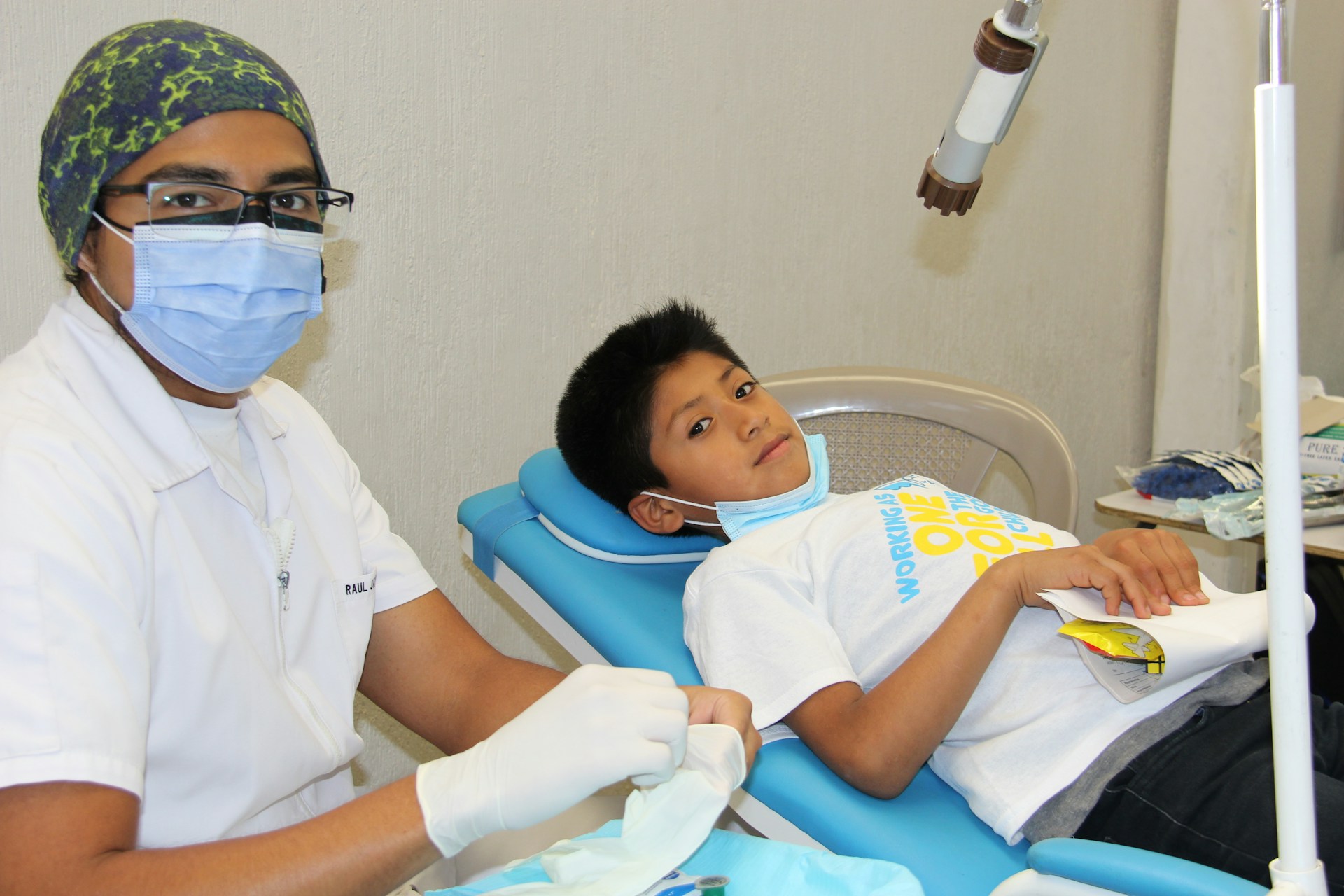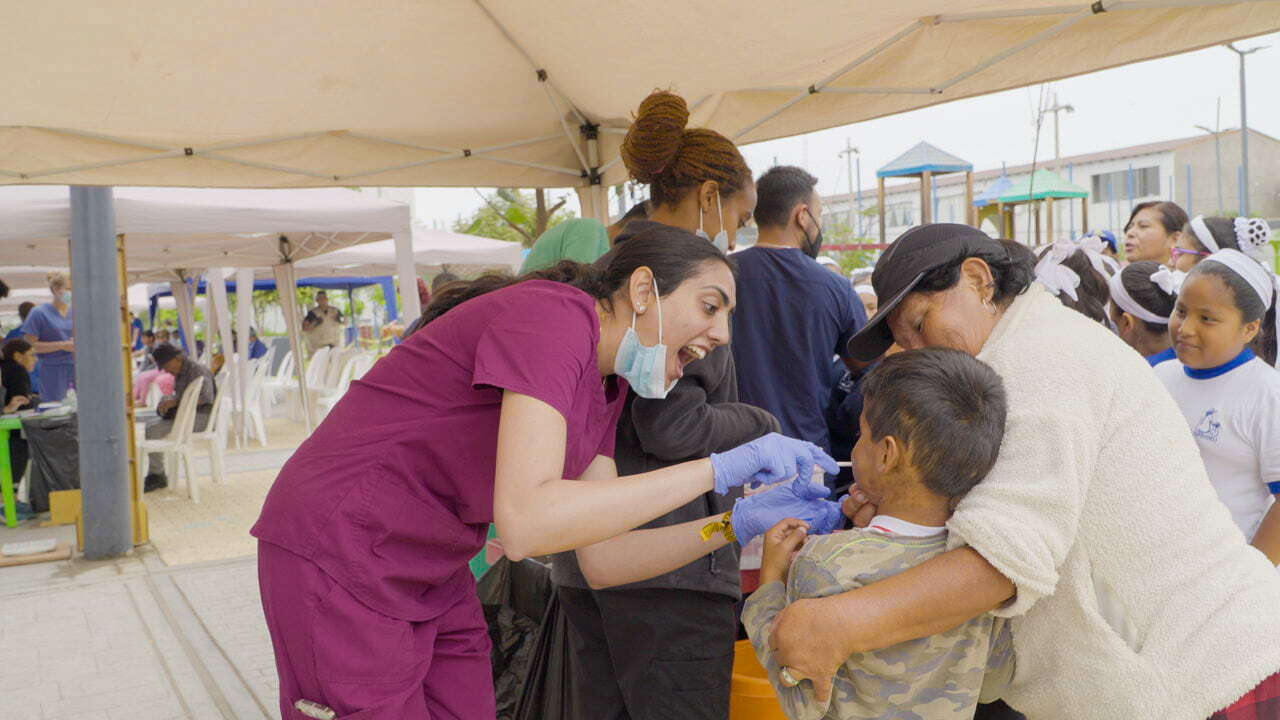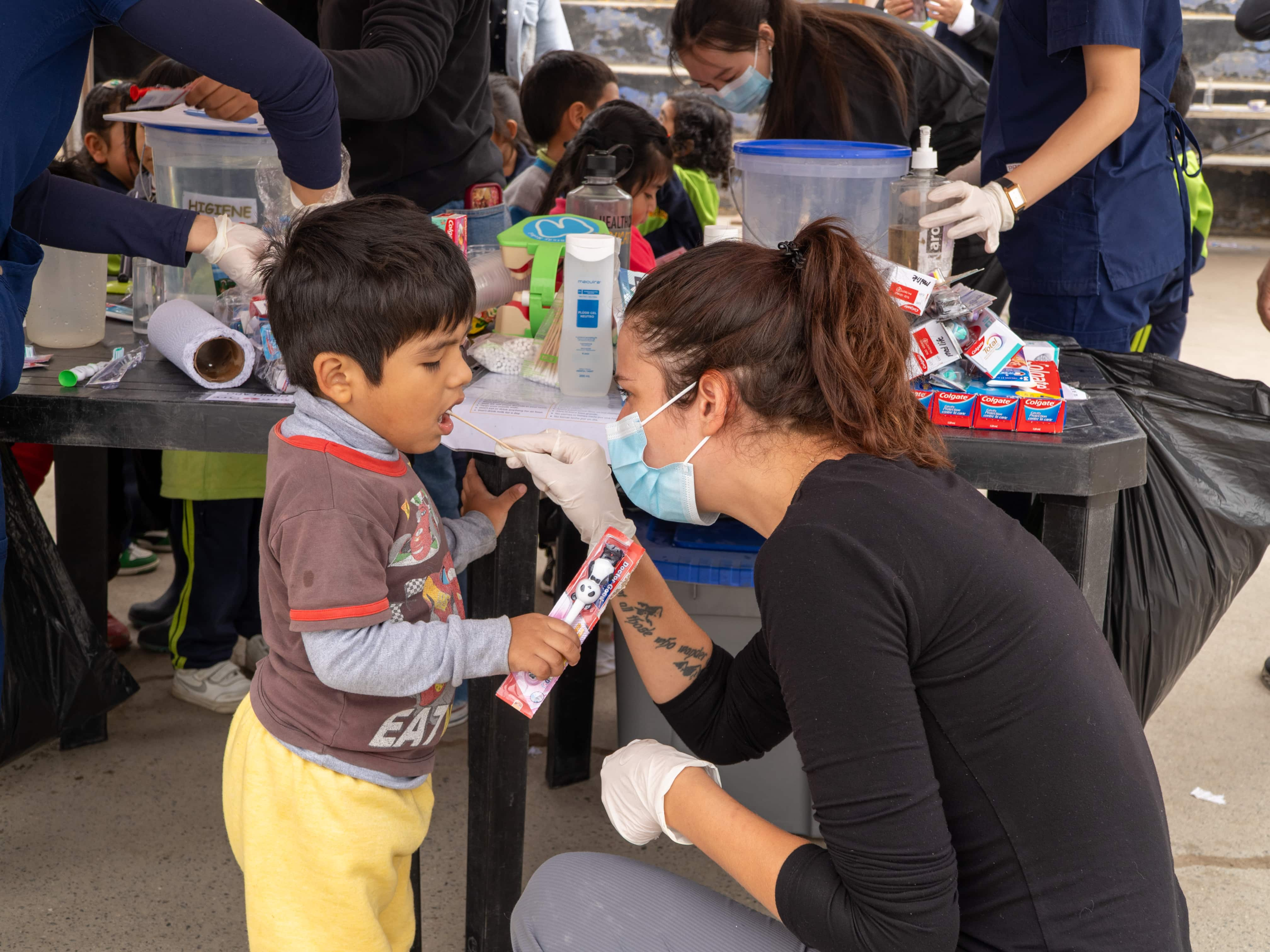
Children’s dental health and Mobile Clinics: How to expand access to oral care
Children's dental health is a vital part of overall wellness. Early oral care prevents infections, supports nutrition, and improves school attendance. At Smiles Movement, our mobile dental clinics prioritize pediatric care because healthy habits formed in childhood lead to healthier adults.
Learn more about how Smiles Movement outreach programs are improving access and transforming communities.
.jpg)
Understanding oral health in childhood
Developing good oral hygiene early has long-term benefits. Cavities and gum inflammation can cause discomfort, interfere with learning, and even impact speech.
By integrating dental education, such as the correct technique for brushing teeth and flossing, and care into our mobile clinics, Smiles Movement ensures that all children receive the knowledge and treatment necessary to enjoy lasting oral health.
Our approach is consistent with global research linking how access to dental care improved academic performance and greater overall well-being in children.

How Mobile Clinics improve dental access
In low-income and rural areas, access to dental care remains limited. Transportation, cost, and lack of providers prevent many children from seeing a dentist. Smiles Movement mobile clinics solve this providing access professional care directly to schools and community spaces.
This approach eliminates barriers while providing preventive and restorative services. It’s an effective model for pediatric dentistry: safe, flexible, and community-centered.

Main benefits of mobile dental services for children
Mobile clinics offer multiple advantages for children and families:
- Convenience: Care comes directly to schools, minimizing absences.
- Prevention: Fluoride treatments and sealants reduce cavity risk.
- Affordability: Services lower financial strain on families.
- Education: Children learn correct brushing and nutrition habits.
This combination ensures that oral care becomes accessible, consistent, and sustainable for every child. Making a lasting impact in underserved communities.
Common dental issues among children
Tooth decay remains the most widespread chronic condition in children globally. Left untreated, it leads to infections and difficulty eating or speaking. Early intervention through mobile clinics stops these problems before they escalate, giving children the chance to focus on learning and growth.
Smiles Movement also educates parents to recognize early signs of dental issues and seek timely help, teaching them about dental myths debunked.
Engaging children and building comfort
Fear of dentists is common among children. To counter this, our mobile teams use interactive activities—storytelling, games, and visual learning—to make dental visits enjoyable. This approach reduces anxiety, builds trust, and encourages follow-up visits.
For volunteers, it’s also a rewarding experience that enhances their leadership and communication skills. And also understand the challenges in underserved regions are highlighted in rural dental health.
Importance of Preventive Dental Care for Kids
Preventive care saves children from pain and families from expensive treatments later. Regular cleanings, fluoride treatments, and sealants reduce cavity risks. Mobile clinics also provide hands-on demonstrations of brushing and flossing, reinforcing habits that children can take home. Prevention is always better than treatment, especially when it comes to kids. Long-term oral success depends on regular dental visits.
Practical tips for parents to support oral hygiene
Maintaining oral health at home is essential. Parents should:
- Encourage brushing twice a day with fluoride toothpaste.
- Promote daily flossing.
- Limit sugary snacks and drinks.
- Choose toothpaste with safe, effective ingredients.
Join the Smiles Movement to Promote Oral Health
By focusing on children’s dental health, our mobile clinics are building healthier futures one smile at a time. You can support this mission by exploring our Smiles brochures and sharing them with others.
Even more, you can directly assist communities in need by becoming a monthly donor. For less than one coffee a month, you can make an impact in low-income communities.



